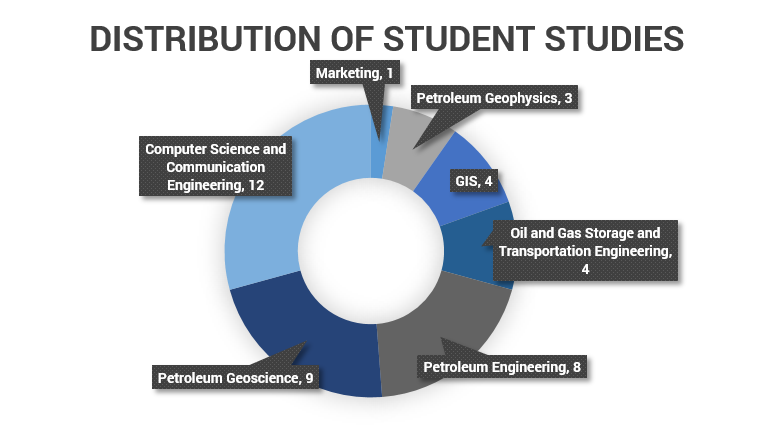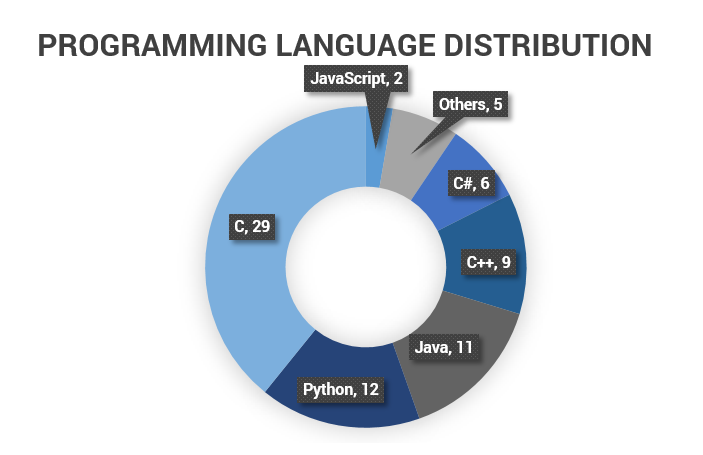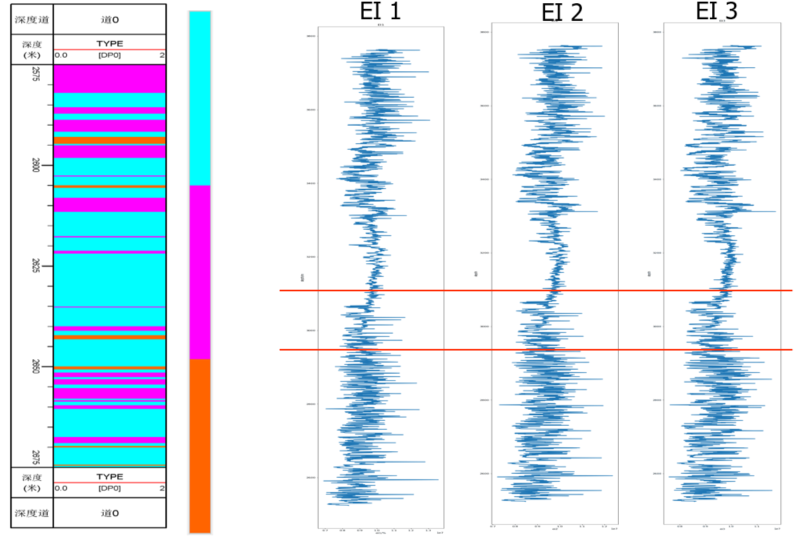The theme of the hackathon was “Petroleum Cloud Development,” and the participating students had to pick from three of the following challenges:
1. GIS challenge: Leverage Google Maps to search, list and display wells spatially
Hackathon members and participants
2. Geology challenge: Using DecisionSpace® Geosciences platform to process different log curves by creating cross plots between density and porosity in a given well
3. Free elective: Solving a problem by using data from REST API in any programming language
Prior to the hackathon, an overview and onboarding session was conducted to orientate the students on OEC development platform. This primer allowed students to understand the benefits of their innovation and contributions to the OEC platform.
OEC members
The final hackathon projects were evaluated based on scientific and technological innovation, knowledge of the subject, and presentational skills.
The students were divided into groups to select their respective challenges and define their hackathon projects. Groups listed below with their final scores.
Over 186,174 lines of code were written within the three-hour hackathon. The team called “The Day After Tomorrow” won first place with the highest score (55.05) and 39,970 lines of code. The winning team was made up of three students who selected two challenges covering GIS and geology. This team’s project was to display wells on a Google Maps, along with the different types of log curves. The team used DecisionSpace platform APIs on the OEC to create interactive plots for data interpretation. The team additionally showcased artificial intelligence and machine learning methods.
““Artificial intelligence is one of the most popular technologies in the world,” said one of the team members during their presentation. “When the number of well logs with lithologic interpretations is enormous, an algorithm like random forest and neural network can be used for lithological prediction of the well logs without interpretation.” ”
The runner-up team, “What Shortcomings on the Wrist,” selected a geology problem statement to create a detailed heat map of well log correlations. This team used DecisionSpace platform APIs to read well log data and create a correlation heat map. They also used Python to conduct predictive analysis of the well log data at different depths based on the given data.
Overall, the impressive projects developed by these students were invaluable, as the experience provided these students with a fresh industry perspective for maximizing their potential – in exchange for learning more about OEC. The students were able to incorporate what they have learned in school and apply it to real-world experience.
This exciting opportunity was achievable due to the generous contributions of our members. We would like to thank OEC members for their contributions to this event.












